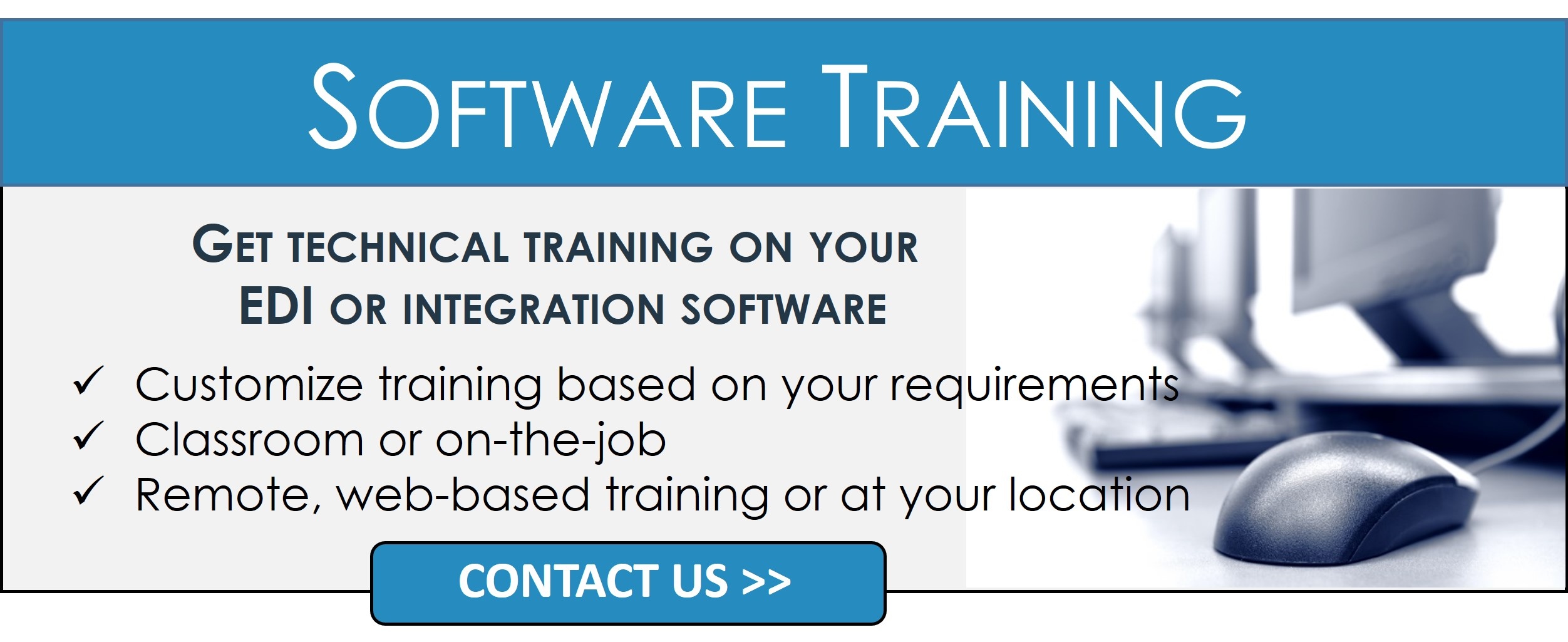
As a recruiter, I’ve had many people ask me “How do I become an EDI developer?” There’s no simple answer. Historically, an EDI coordinator or EDI business analyst who wanted to become an EDI developer would be trained on their company’s EDI tool and their career would evolve internally.
Today companies advertising for an EDI developer typically need a candidate to be able to hit the ground running. Usually, this means you need five or more years of experience with a particular product like IBM Sterling B2B Integrator, Cleo Integration Cloud, or even a legacy solution such as IBM Sterling Gentran.
They also want experience mapping to their ERP solutions including Infor, Oracle, SAP, Acumatica, and home-grown systems, to name a few.
However, there are paths open to you—especially if you’re already in the EDI side of IT as a coordinator or business analyst.
Where do I acquire training as an EDI Developer?
Obviously, EDI is a highly specialized niche within the broader IT field. This means you’ll need to seek out equally specialized training options.
At one time, software companies offered training. Today, most have moved to third-party training partners. For example, Remedi offers EDI tool-specific training for IBM Sterling and Cleo products. We base our training on actual production environments to allow users to relate training content and concepts to the use cases they see every day.
Also, if you haven’t already, you can join EDI professional communities on LinkedIn and Reddit and query members for practical advice about EDI upskilling and recommendations on training resources.
The Case for EDI Training
Another trend we’ve seen emerge following the pandemic is a shrinking pool of qualified EDI specialists at all levels due to retirements and resignations. At the same time, demand is rising for EDI talent as companies push to modernize their EDI and integration environments as well as catch up on backlogs related to snarled supply chains.
These dynamics are causing growth-oriented companies to invest in training. If you work for an organization with an in-house development team on site that provides over-the-shoulder training, take advantage of it.
EDI is a complex discipline and the opportunity to learn from your more experienced peers is invaluable. And you put yourself in a better position to advance if the person you’ve been learning from decides to leave the company or retire.
Is There A Future for EDI Developers?
I hear regularly from in-house EDI specialists at all levels who ask me what life is like for EDI professionals on the consulting side. Like any major career decision, going from company-side EDI to EDI consulting carries risks and rewards that vary with the individual, their skills and experience, and their professional and personal goals.
If you’re curious about making the transition to EDI consulting, I recommend reading our blog on the topic.
Finally, I am sometimes asked whether I think EDI is a dying technology. I don’t.
It is true that other technologies have emerged to challenge EDI’s share of electronic B2B sales, mainly APIs. Among the companies we serve, APIs and EDI are complementary, rather than competing, methodologies for exchanging e-commerce data. As such, each has a role to play in the modern integration ecosystem.
At the same time, it’s worth noting that EDI expansion continues across all industries, and accounts for 78% of all electronic B2B sales. So it’s no surprise that we’re bullish on the future of EDI and the growth potential for EDI developers.
If you decide you want to learn more about EDI consulting careers, or opportunities with Remedi customers, drop us a line at staffing@remedi.com.






